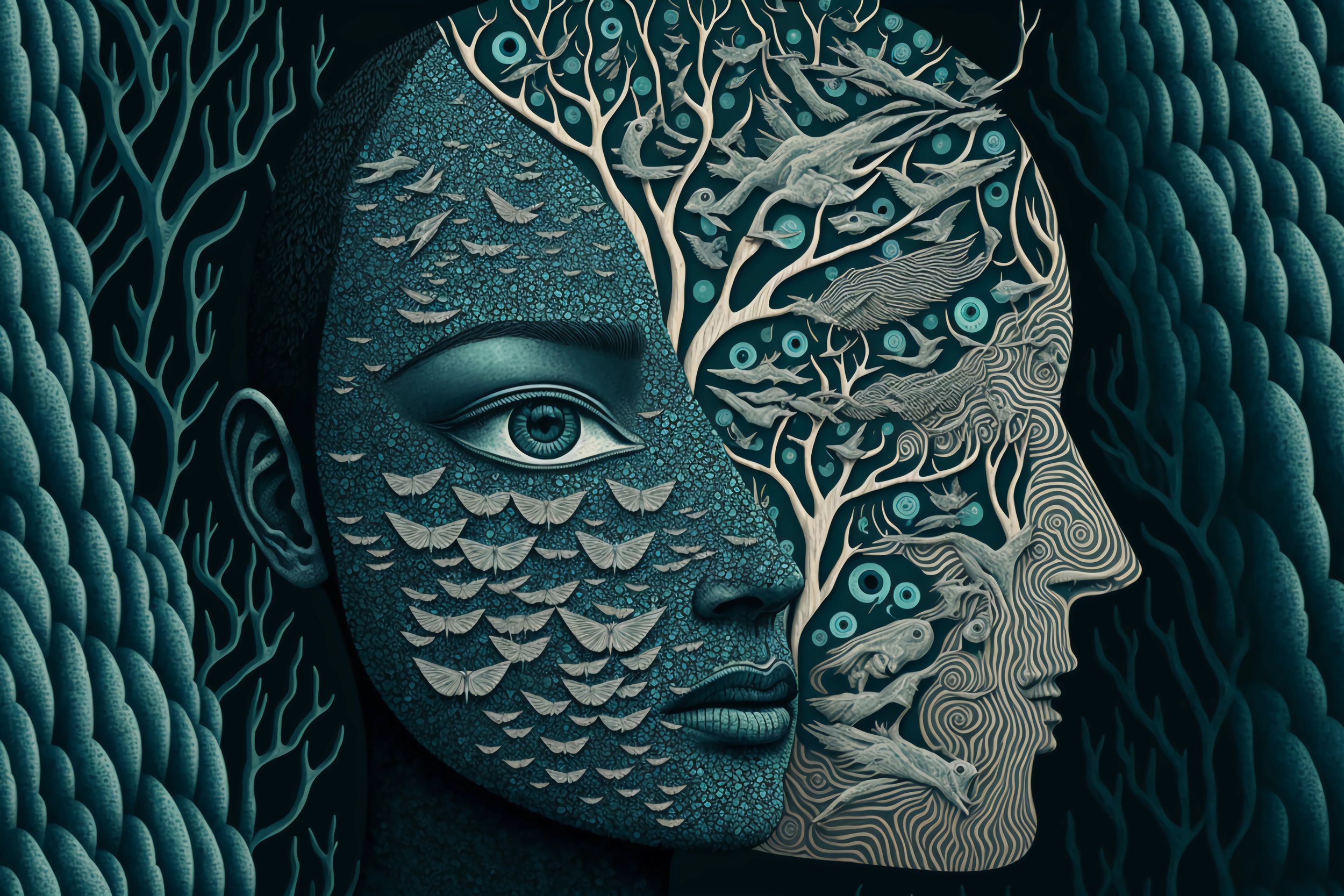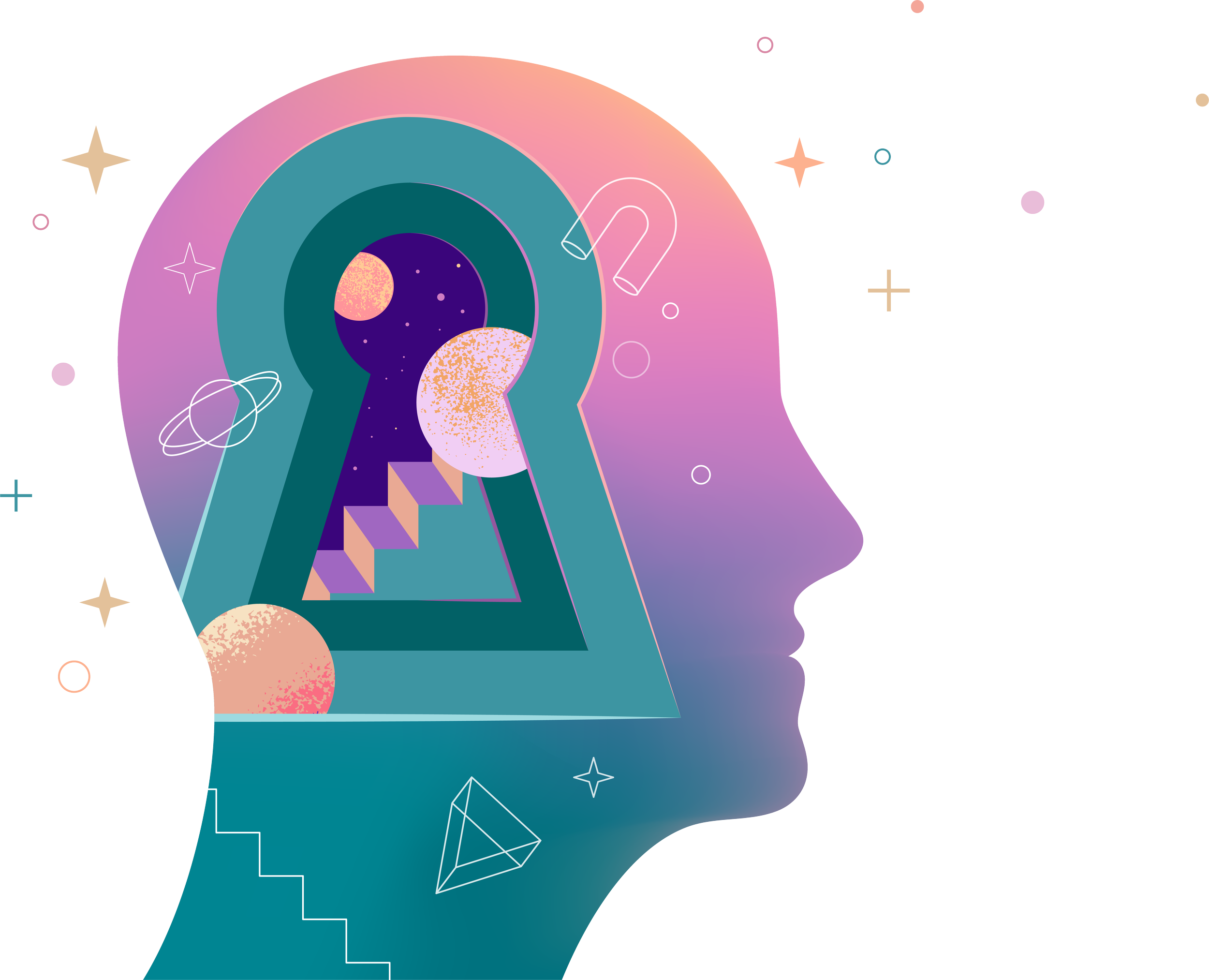
Do I have Trauma?
You can't alter what you avoid or don't acknowledge.

Did you know that a significant majority, around 90% of individuals, have a history of trauma?
While some can successfully navigate through their traumatic experiences, others may find it challenging to cope with the lasting effects of such events.
I believe that it is fundamental to be informed about how trauma can potentially affect an individual’s life. This understanding shapes the direction of treatment and informs it’s pace.

Complex Trauma involves chronic exposure to adverse experiences and a lack of safety in relationships, resulting in deep and long-lasting emotional and interpersonal difficulties.
Childhood Trauma (developmental trauma)
refers to the trauma that occurs most often within the context of our earliest relationships with our caregivers. It is cumulative and repetitive, and it may manifest as intense/overwhelming feelings and/or numbness, difficulties in relationships, and lasting mental health struggles. Recognizing and addressing childhood (or developmental) trauma is essential for cultivating personal growth and resilience, forming the foundation for a healthier, more fulfilling life.
Relational Trauma (interpersonal trauma)
refers to the trauma that unfolds within the context of relationships (childhood and/or adulthood). It encompasses a spectrum of experiences that, when cumulative and repetitive, can leave you grappling with feelings of fear, helplessness, and overwhelming emotional distress. It may influence how we connect with others, build trust, and navigate the complexities of interpersonal dynamics. Understanding and addressing this type of trauma is crucial for fostering healthier, more resilient relationships.

OUR PAST EXPERIENCES shape who we are in the PRESENT.
When steady care, nurturing, and security are lacking from our caregivers during our formative years, it can result in developmental challenges that fundamentally alter our self-perception and relationships with others.
The work of healing deeper wounds often addresses developmental and interpersonal trauma due to its profound and enduring impact on our adult lives.

TRAUMA IS NOT BLACK & WHITE
IT EXISTS ALONG A CONTINUUM
It's essential to recognize that you don’t have to experience what society might deem extreme cases of trauma (such as domestic violence, abuse, or other harrowing events) to be significantly affected.

Here are some sneakier ways in which your early relationships may have impacted you. If this was your only experience, it may be difficult to recognize.
-
This might involve growing up in a middle-class or an affluent household where your basic needs were met, yet you were emotionally neglected/misunderstood by a caregiver who was limited in their ability to provide support or acknowledge your emotions, and oftentimes their own emotions. Consequently, you learn to rely on yourself, feeling safer in solitude than in close connections. This is rarely intentional, which is why it can be difficult to acknowledge for some individuals.
-
In cases where caregivers were rarely available or were unstable due to substance abuse, workaholism, mental/physical health issues, unresolved trauma, or other challenges, trust can become a significant issue for you. Maybe you were thrust into the role of being the caregiver for your parent or siblings, or you took on responsibilities that were beyond what would be normal at your age. You may find it safer not to let your guard down, struggling with setting boundaries as an adult.
-
If your caregiver was often angry, physically threatening and/or abusive (to you or to other family members), they would have likely frightened you. This often leads to the underlying belief that relationships are unpredictable and caregivers are untrustworthy, always leaving you on-guard. You might feel the need to defend and protect others in relationships instead of feeling safe enough to be interdependent.
-
Perhaps you grew up in a family that taught you to suppress/hide your emotions. As an adult, you may believe that certain vulnerabilities and emotions are unacceptable or burdensome to others. It may be difficult to form close relationships and develop true emotional and/or physical intimacy as an adult, as you don’t feel safe showing your true emotions.
Recognizing the impact of our early relationships is not about blaming our parents; rather, it is about making space to acknowledge how we learned to navigate relationships, to feel what was never safe to feel and to develop an understanding of how these patterns may persist into adulthood. It provides insight into our relational dynamics, paving the way for growth and healthier and more intimate connections.

You can't alter what you avoid or don't acknowledge. While challenging, you must gradually acquire the skills to accept, comprehend, regulate, and cope with your inner experiences.
It's completely natural to want to avoid certain inner experiences or emotions, particularly if they are tied to trauma and/or your more nuanced experience of developmental/relational trauma.
It is also important to acknowledge that healing from trauma requires a gradual exploration, acknowledgement and acceptance of these inner experiences to gain understanding and facilitate change.

What if I'm uncertain about whether I've experienced trauma, but I'm facing challenges with my mental and/or physical well-being?
Trauma can manifest in various ways, and it's not always easy to recognize, especially if you are not aware of/are struggling to realize the impact of past experiences (this is extremely common). Developmental trauma, which occurs during childhood, can have long-lasting effects on our emotional and psychological well-being.
Here are some symptoms of trauma that may not be evident to you:
-
Individuals who have experienced developmental trauma may struggle with forming and maintaining healthy relationships. Trust issues, fear of abandonment, and challenges with intimacy can be common.
-
Trauma can erode a person's sense of self-worth and confidence. This may lead to a persistent feeling of inadequacy or self-doubt.
-
Some individuals may experience a persistent sense of emptiness or numbness, which can be a coping mechanism to avoid painful emotions associated with past trauma.
-
A strong desire for perfection and fear of failure can be a coping mechanism developed in response to trauma. This perfectionism may be an attempt to gain control over an unpredictable environment.
-
Trauma can disrupt the development of emotional regulation skills. Individuals may struggle with intense emotions, mood swings, or difficulty identifying and expressing their feelings and/or needs.
-
Engaging in risky behaviours, substance abuse, self-harm, or other self-destructive actions may be a way for some individuals to cope with underlying trauma.
-
Trauma can contribute to the development of anxiety and depression that may not be directly linked to the traumatic events. These symptoms may manifest later in life.
-
While more commonly associated with Post-Traumatic Stress Disorder (PTSD), flashbacks or intrusive memories can also occur in individuals who have experienced developmental trauma.
-
Developmental trauma can impact the ability to form healthy attachments. This may manifest as difficulty trusting others, avoiding close relationships, or struggling with dependency.
-
Trauma can sometimes be expressed through physical symptoms such as headaches, stomach-aches, IBS, Fibromyalgia, chronic pain/illness or other unexplained physical symptoms. It can also make symptoms from an existing medical condition worse/flare up for some individuals, particularly if it is left unaddressed.







